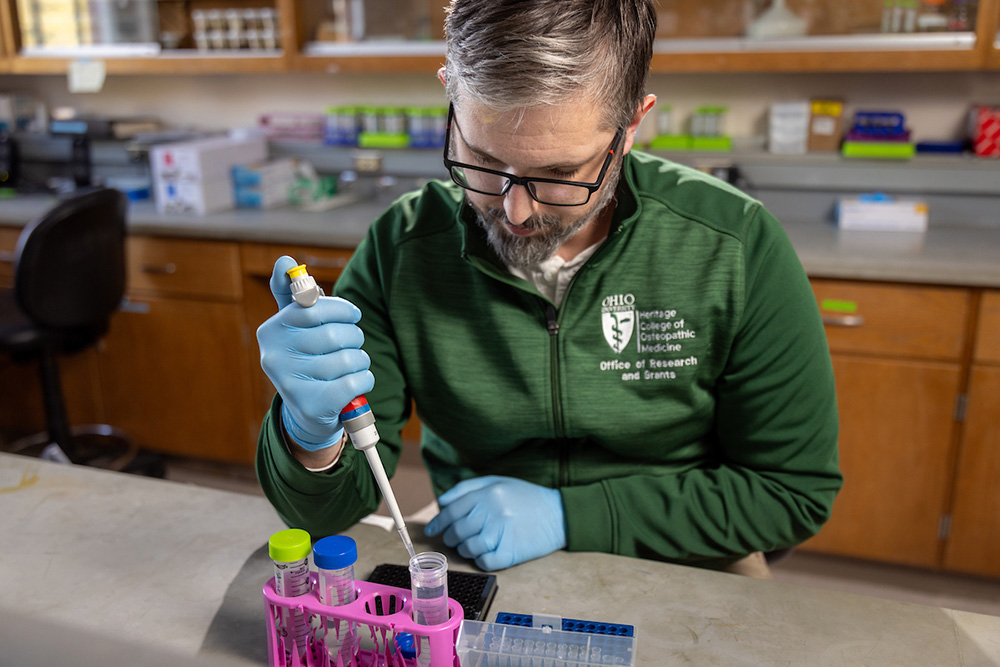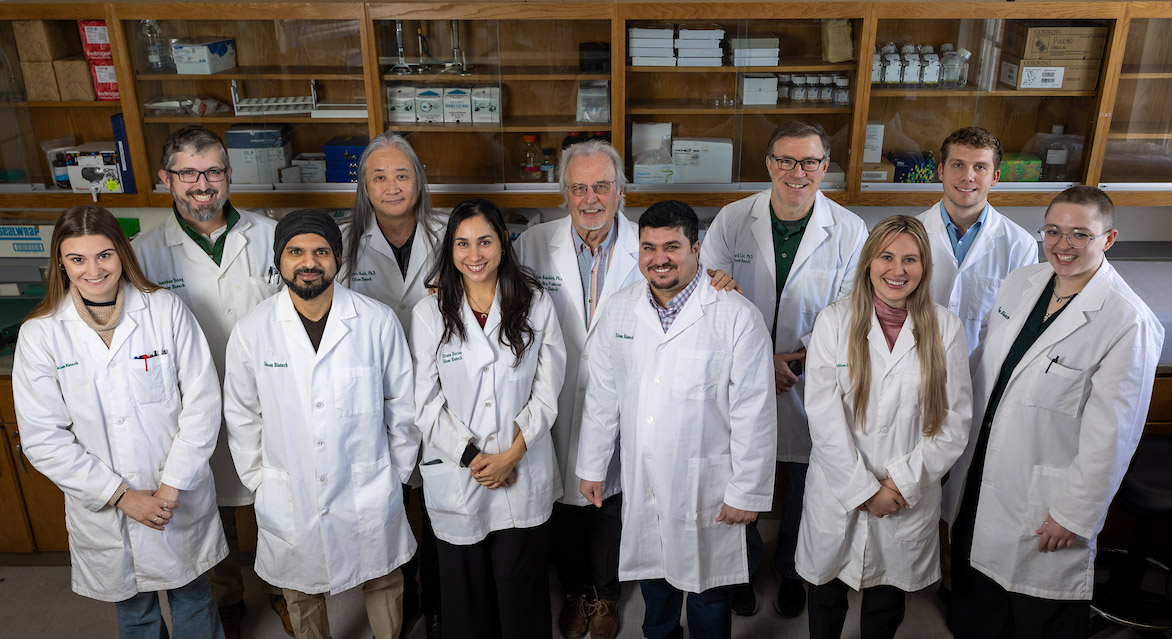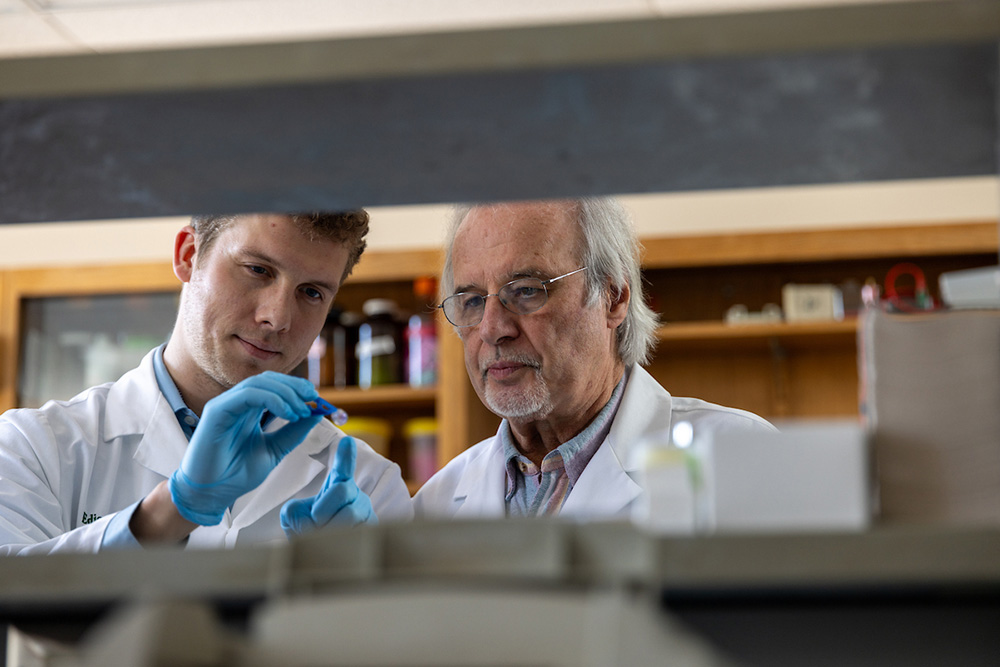In June, the Ohio University Heritage College of Osteopathic Medicine announced a name change and refined focus for the Edison Biotechnology Institute. Now called the Institute for Molecular Medicine and Aging, IMMA
will build on the distinguished history of EBI to advance research in cancer, aging and drug discovery.
"With this transformation, we can enhance our strategic positioning, build on existing expertise and maximize funding opportunities, all of which will ultimately benefit the health of our communities,” said Darlene Berryman, Ph.D., associate dean of research and innovation at the Heritage College and the interim director of IMMA.

IMMA will advance scientific discovery and lead to the development of targeted interventions that promote healthy aging at the molecular level.
Under its new name and more targeted research focus, IMMA is a place for University researchers to come together and work on molecular scientific advancements around the aging process. The institute will support innovative research from bench to bedside, interdisciplinary training and the translation of discoveries into initiatives to enhance health span and quality of life.
“IMMA will advance scientific discovery and lead to the development of targeted interventions that promote healthy aging at the molecular level—aims that will ultimately advance our college vision of a healthier Ohio," said Heritage College Executive Dean Ken Johnson, D.O.

Research at the Institute for Molecular Medicine and Aging (IMMA)
At Ohio University’s Institute for Molecular Medicine and Aging, the primary question is deceptively simple: how do the smallest changes inside cells shape the course of human health? The answers, pursued through drug discovery and molecular biology, cover some of the most pressing challenges of modern medicine: cancer, aging, and chronic disease.
Cancer research
Cancer remains one of the most formidable problems in biomedical science, not only because every case is genetically distinct but because tumors evolve under pressure, resisting even the best therapies. But IMMA scientists are breaking it down to the cellular level. They’re studying what makes tumors grow, why treatments stop working, and how to spot cancer earlier through new biomarkers. One approach getting attention: drugs that block growth hormone receptors
, which could cut off cancer’s fuel supply.
Aging and longevity
The study of aging at IMMA begins with a recognition that longevity is not only measured in years, but in quality of life. Researchers are looking at the interplay of genetic, metabolic, and endocrine factors that accelerate or slow the aging process. By mapping these pathways
, the institute aims to identify interventions that extend health, delaying the onset of age-related disease and preserving resilience.
Drug discovery and chronic disease
Many of IMMA’s discoveries converge on a shared goal: to translate molecular insights into therapies for conditions that unfold over decades. The institute’s focus on small molecules and peptide-based drugs
, which can show greater efficacy, reflects a commitment to advancing ideas from the laboratory toward clinical application, bridging the gap between basic science and patient care.

A renowned research history
Before its name change to IMMA, EBI had a distinguished 40-year history of pioneering biotechnology research at Ohio University, serving as the home for numerous scientists from across the University, including that of Goll-Eminent Scholar John Kopchick, Ph.D., an expert on growth hormone who discovered SOMAVERT, a drug used to treat acromegaly.
IMMA, along with the Diabetes Institute
, Ohio Musculoskeletal and Neurological Institute (OMNI)
and the Institute to Advance Health Equity (ADVANCE
), will become anchor tenants in the new Heritage Translational Research Center
when it opens in late 2026. The Athens-based research building, currently under construction, and the evolution of IMMA are being supported with funding from the Osteopathic Heritage Foundation.


